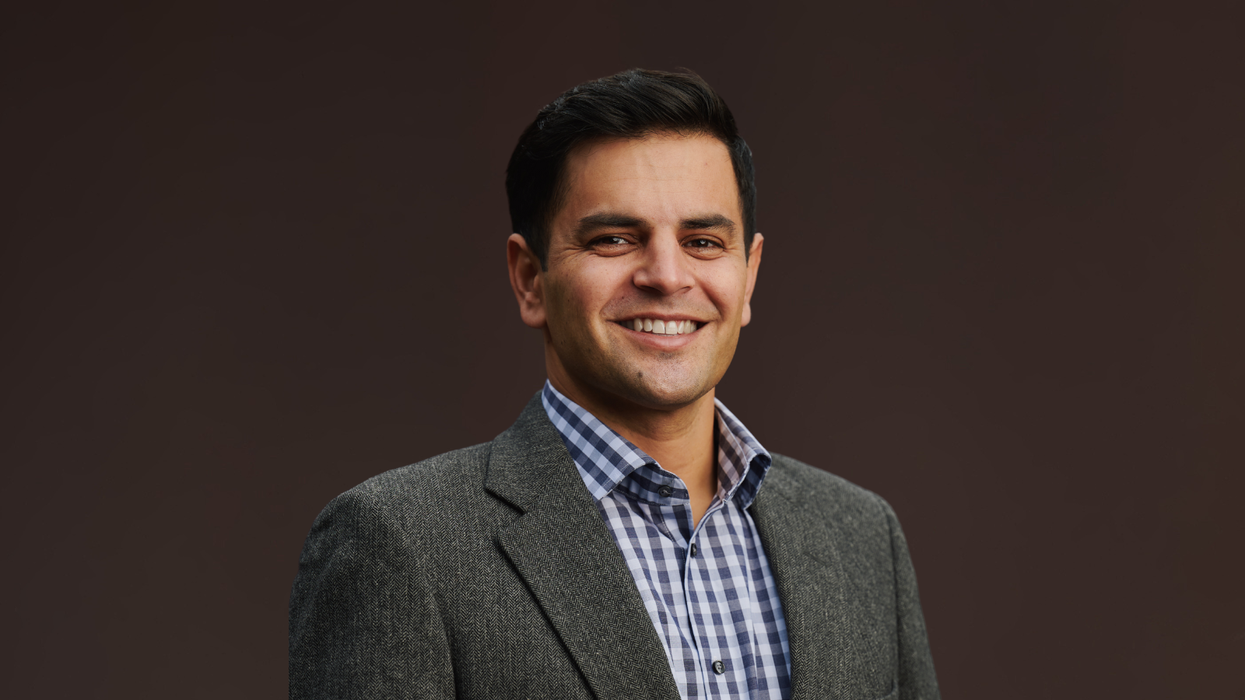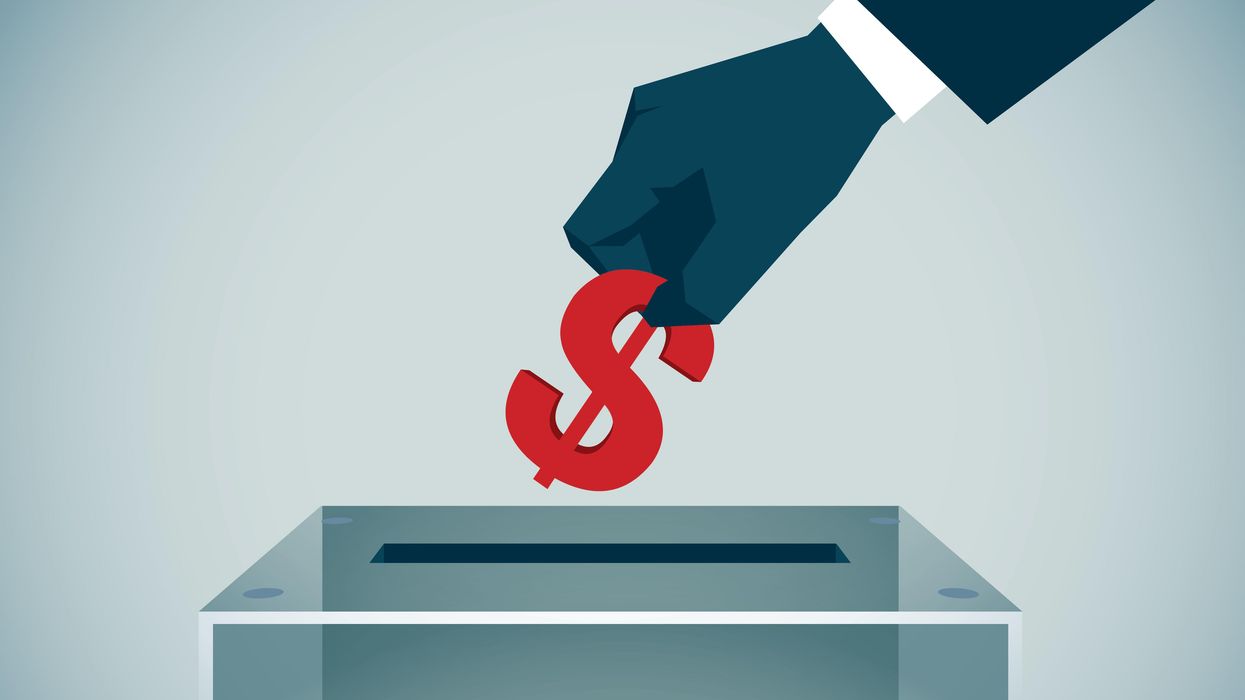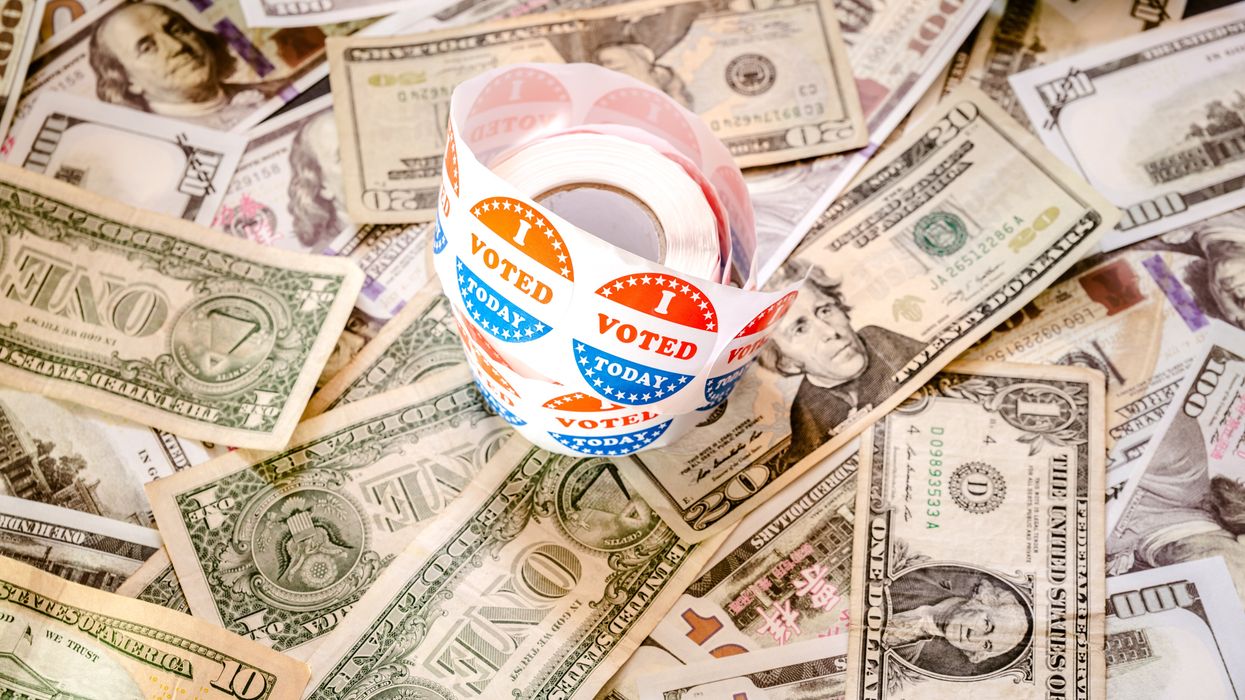Since organizing the Voters Not Politicians 2018 ballot initiative that put citizens in charge of drawing Michigan's legislative maps, Katie Fahey has been the founding executive director of The People, forming statewide networks to promote government accountability. She regularly interviews colleagues in the world of democracy reform for The Fulcrum.
Estevan Muñoz-Howard is Senior Director at Ktisis Capital, Treasurer for the Funders’ Committee for Civic Participation, and Executive Board member of Voices for Progress. He has over 15 years of experience leading programs and coalitions in the nonprofit sector, including the successful Honest Elections Seattle campaign of 2015—a historic initiative to implement the world’s first Democracy Voucher program. He is passionate about inclusive democracy, community organizing, and the diffusion of power.
Fahey: Tell us about your background; what led you to get involved with the Democracy Dollars Seattle Campaign?
Muñoz-Howard: Making change has always been an overarching theme for me. My political theory classes piqued my interest, particularly the role of money in politics. I saw the power of money and corporate interests in shaping economic policies and recognized that money was consistently at the root of efforts to block progress on issues I cared about. This perspective led me to think about what we can do as citizens to wield our power to change the system.
On my return to Washington in 2007, I joined a group of like-minded people aiming to overturn the statewide ban on public financing for local jurisdictions. We began exploring the feasibility of creating a program in Seattle. In 2012, the City Council asked the Seattle Ethics and Elections Commission to propose a public financing model, and our group acted quickly, creating a small donor matching system proposal that heavily informed the policy, ultimately recommended by the commission.
When the City Council referred the proposal to the 2013 ballot, late in the year, many funders had already committed their resources to other campaigns. Despite this, our team championed the campaign—door-knocking to raise limited funds in fervent hope of a victory. Ultimately, the measure failed but surprisingly garnered 49.63% of the vote—just 1,400 votes shy of victory in a city with over 500,000 voters.
The narrow loss allowed us to fail forward, with several funders calling us to explore future partnerships. We went on to raise an initial $300,000 to pursue public financing once again and decided to pursue a ballot initiative campaign, allowing us to be more aspirational in responding to voter interests instead of focusing on what was politically palatable. With this strategy shift, we explored innovative alternatives to the small donor matching system, leading us to raise $1.5 million and create a new campaign finance model called the Democracy Voucher Program.
Fahey: How does the Democracy Voucher Program work?
Muñoz-Howard: The program provides adult residents of Seattle with an opportunity to designate four $25 vouchers to qualified candidates of their choice. The vouchers can be split among different candidates for mayor, city council, and city attorney, provided those candidates adhere to spending and fundraising caps.
Fahey: How is the program funded?
Muñoz-Howard: It is funded by a 10-year property tax levy, the smallest in the city’s history. It raises $6 million per election cycle ($3 million/year), used to fund the program. The levy is up for renewal later this year.
Fahey: It has been 10 years since the Honest Elections Seattle citizen-led initiative was passed. How has this campaign finance reform impacted local elections?
Muñoz-Howard: The program has had a transformative impact on Seattle’s electoral landscape, with a five-fold increase in the number of small donors participating, particularly among historically underrepresented communities. It has diversified the candidate pool and donor base and reduced the influence of big money in elections. A new standard for transparency and accountability in local politics was set while promoting equitable participation across socioeconomic demographics. It will take time to realize the program’s full potential but we’re well on our way.
Fahey: How does this reform benefit small and large donors and candidates alike?
Muñoz-Howard: Small-dollar donors have a stronger voice, more power to influence campaigns, and more faith in local democracy. Large donors have a reduced burden as they no longer have to carry a candidate’s campaign, shifting their role from funder to ambassador.
Candidates can run based on their desire to help their communities instead of catering to the interests of wealthy donors. They are incentivized to engage with the people in their communities, as every resident is now a likely voter.
Fahey: The property tax levy funding the program expires at the end of 2025. Where are you in the process of renewing support, and which offices are impacted?
Muñoz-Howard: We are working with the city council to refer the levy renewal to the ballot this fall, and are optimistic it will be renewed. Our coalition recently participated in a press conference with the Office of the Mayor, officially launching the levy renewal effort. We encourage Seattle voters to contact their city council members about renewing the funding.
Fahey: What do you need the most help with, and how can people get involved?
Muñoz-Howard: Campaign funding is the biggest need. We encourage residents to contact the city council to let them know you support the program. Anyone interested in getting involved can go to: peoplepoweredelections.org.
Fahey: Do you have any words of advice for citizens wanting to do something about an issue with our political system?
Muñoz-Howard: People have real power to innovate locally, where money is less entrenched. Cities and states truly are laboratories of democracy, and so much is possible with just a few committed individuals. Find people who share your passion and explore what you can collectively accomplish!
Fahey: In what way does the program strengthen democratic ideals?
Muñoz-Howard: It does so by increasing public voice, inspiring civic engagement, restoring faith in the democratic process, and mitigating the influence of money in politics. It is an important step forward that helps amplify the voices of everyday people in our democracy.
I am excited about the potential for other local jurisdictions to replicate the program, using Seattle as a model. Oakland has already passed it, and several cities are actively working on campaigns.
Fahey: If you were speaking with a high school student or a new immigrant to the country, how would you describe what being an American means to you?
Muñoz-Howard: To be American is to be a work in progress. We have an imperfect system that from the beginning was not made for everyone, yet we have power to tip the scales toward justice. When we feel powerless, we cannot lose sight of the role we each play in making the world a better place.



















